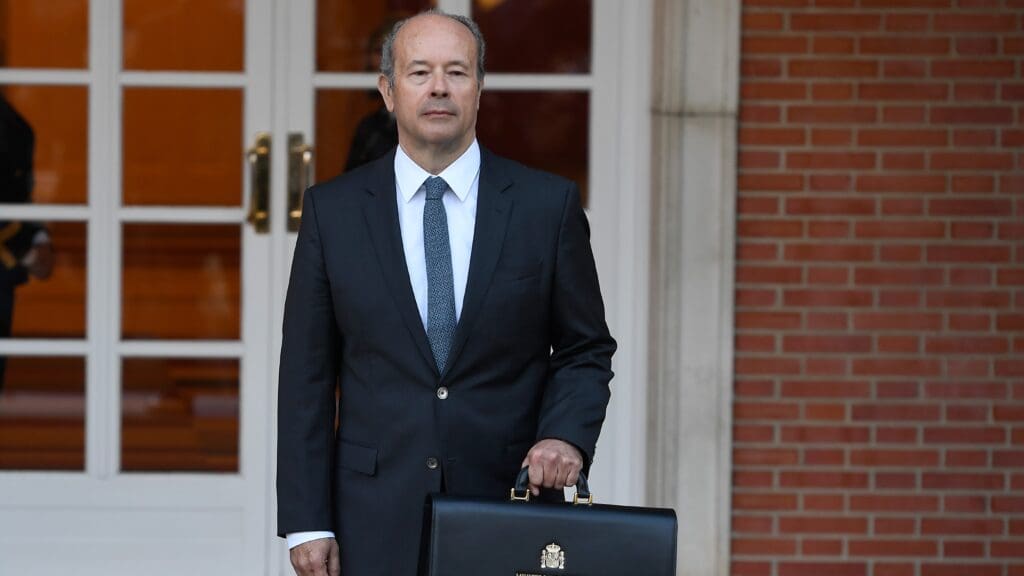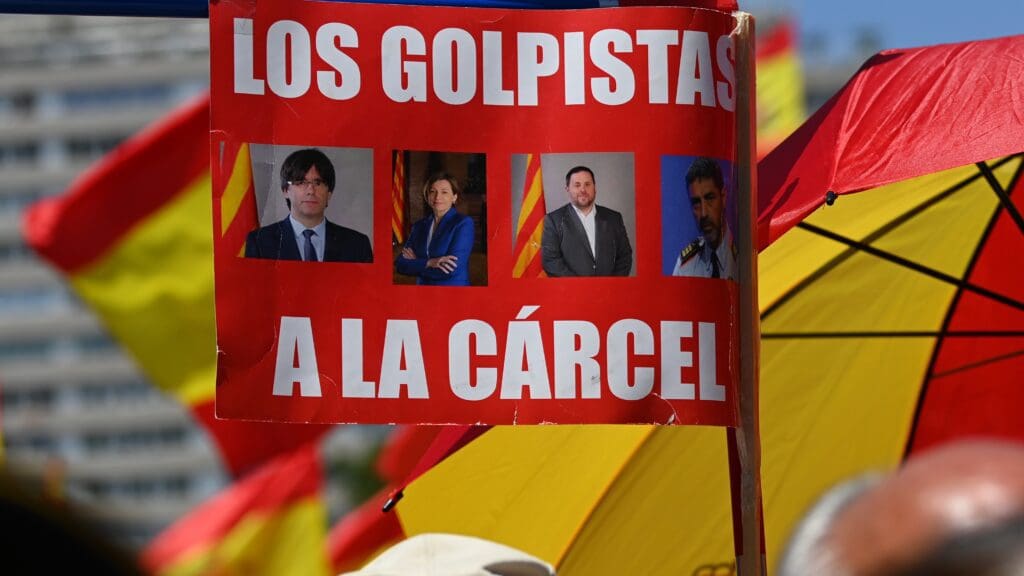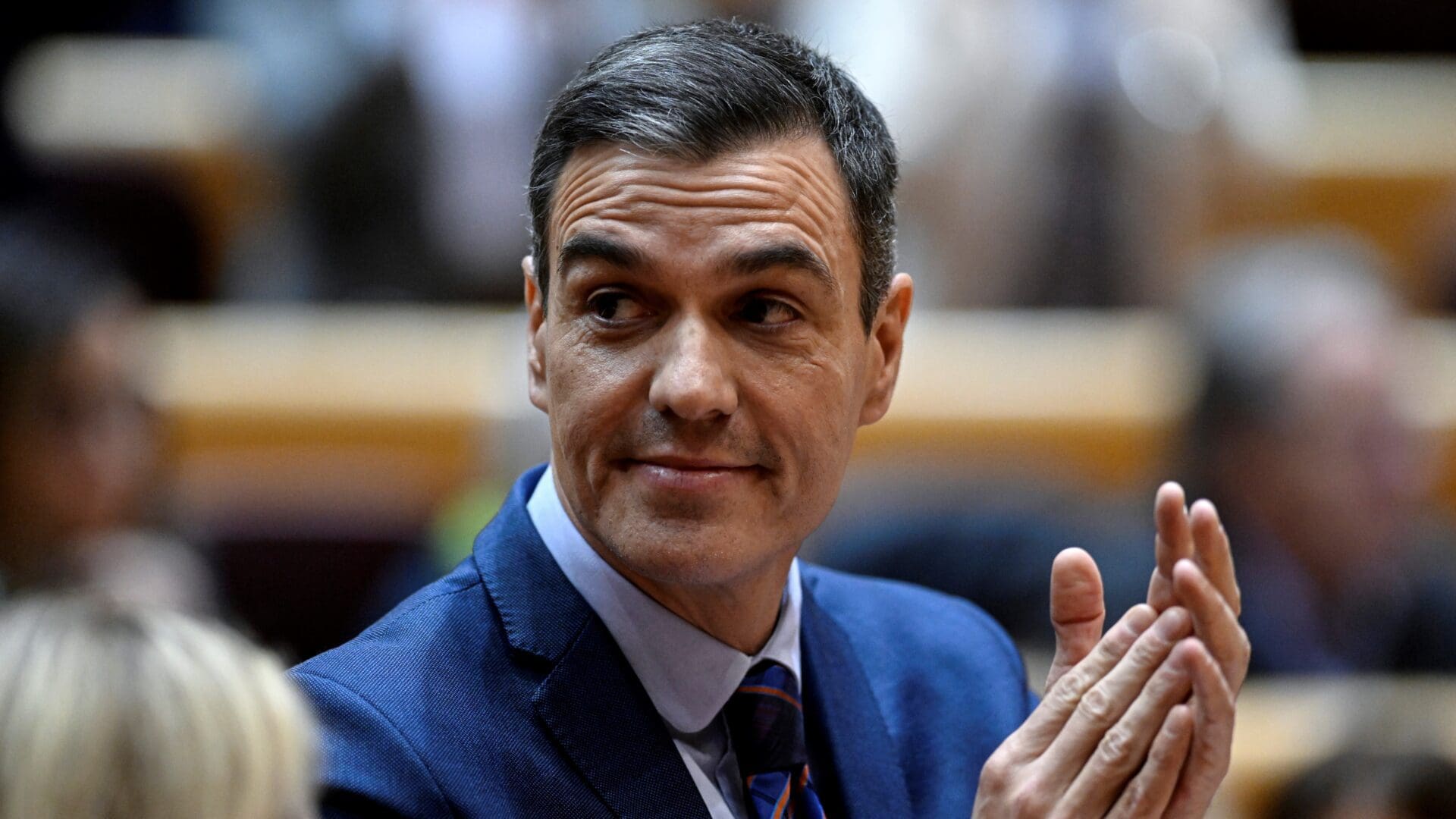‘We see a worrying trend of actions by the Spanish Government that are undermining the rule of law in Spain. The government interference seriously endangers judicial independence; that includes attempts to politicise the Constitutional Court. The Socialists must stop applying double standards concerning the rule of law and the Spanish Government must immediately take action to stop the undue influence of the judiciary.’
The quote comes from the website of the European People’s Party, the European Parliament’s largest political group with 176 representatives. The EPP communiqué does draw attention to a recent crisis concerning the rule of law in Spain;
nevertheless, the press response the case received has been disproportionately little compared to the importance of the crisis.
The international public typically considers Poland, Hungary, and a few other Central and Eastern European member states of the European Union to be places where the rule of law is in danger. But in fact, it is Spain, celebrated as one of the strongholds of European progressivism, where the rule of law was most recently turned upside down.
The Spanish Government Invaded the Constitutional Court
Until last December, there was a conservative majority in the Constitutional Court. The Spanish government led by Pedro Sánchez, preparing for re-election this year, has set itself the goal of packing the body with its politicians.
Spoiler alert: the Spanish Socialists have successfully implemented their plan. Now, among the members of the Constitutional Court, Sánchez is clearly close to Juan Carlos Campo, who held the position of minister of justice until 2021, and Laura Diez Bues, who was also a member of the Sánchez administration until April 2022.
Until December 2022, there were five progressive and six conservative justices sitting on the Constitutional Court, meaning that the conservative majority seemed secured. This was an obstacle for the Socialist Sánchez government since it was preparing to pass several progressive bills before the elections.

The Path to Sánchez’s Goal Led Through the Dismantling of System of Checks and Balances
For background: the Spanish Constitutional Court consists of 12 justices. Four of them are nominated by the lower house of the parliament (the Congress), four by the upper house (the Senate), two by the government, and two by the judicial administration body (Consejo General del Poder Judicial, CGPJ), which, in terms of its powers, resembles the National Judicial Council operating in Hungary.
However, the twenty-member CGPJ is also struggling with problems. In December, the body had already operated with the same staff for the ninth year – and since 2018 in doubtful conditions.
The mandate of the CGPJ expired in 2018, and changes in its composition continued to be blocked by a political deadlock:
the governing Socialists and the conservative opposition Popular Party (PP) have since been unable to reach an agreement on the people to be appointed to the body.
It should be noted that this anomaly also attracted the attention of the European Commission: Commissioner Didier Reynders pointed out last September that Spain, which will hold the EU presidency in the second half of 2023, would need to remedy this problem through reforms. The problem was also included in the European Commission’s rule of law report on Spain. On the whole, however, the Commission’s rebuke received significantly less publicity than the criticism formulated about Poland and Hungary. It also worth mentioning as a result of the long-outstanding deadlock, Spain even has been downgraded from a ‘full democracy’ to a ‘flawed democracy’ by The Economist Intelligence Unit (EIU) index.
But back to the CGPJ: the body, which had already been struggling with many problems, was reluctant to nominate its candidates for the Constitutional Court positions until December. The stalemate also negatively affected the operation of the Spanish Supreme Court, which determines the main directions of jurisdiction.
As the European Union Commission’s report on the rule of law stated last year, the Supreme Court performs its duties with 14 per cent fewer judges than required by law. In addition, as stated in the 2022 report of the European Network of Councils for the Judiciary (ENCJ),
65 per cent of Spanish judges believe that their appointment is not based solely on their skills and experience,
but is rather driven by political considerations.
To draw attention to the importance of this deep institutional crisis, Carlos Lesmes, the former leader of the CGPJ resigned from his position on October 9 last year.
Sanchez Found Allies Among the Separatist Parties
All this prompted Sánchez to look for a political solution. He searched and found one in a quest that can hardly be celebrated. In the first round, the ruling party attempted to reduce the validity threshold required to elect the members of the CGPJ from the current three-fifths majority to a simple majority.
This was torpedoed by the conservative opposition: the PP appealed to the Constitutional Court for legal redress, and the highest court suspended the upper house’s legislative process in this round. Notably, this was the first time since 1978 that a court blocked the legislative process in Spain.
Sánchez, aware that his conservative opposition does not support him in breaking the deadlock, turned to the ‘political martyrs’ of the failed 2017 Catalan independence bid for help.
He attached his institutional adjustments to a criminal reform package that eliminated the crime of ‘sedition’ and eased the penalties for the misuse of public funds
—a move applauded by the pro-independence politicians who were being prosecuted by Madrid for exactly these crimes.

Thanks to the criminal law reform, many Catalan pro-independence politicians can now feel relieved, as several of them have lived abroad to avoid criminal proceedings since the charges were first pressed against them. Carles Puigdemont, for example, the previous leader of Catalonia, fled to Belgium in 2017, and has been staying there ever since. Puigdemont is now politicking as a member of the European Parliament.
So this hotchpotch of a bill was supported by the parties representing the pro-independence minorities, and since it was also accepted by the Senate at the end of December, the criminal law reforms can enter into force at the beginning of 2023, without further legislative drafts challenged by the conservative opposition before the Constitutional Court (as mentioned above, the institutional reform about the CGPJ did not go through the body).
The Crisis that Melted like Sugar in a Cup of Coffee
Although the manoeuvre seemed hair-raising, it turned out to be successful: after drifting to the brink of utter paralysis, the rule of law seemed to have returned to a state of calm. Eventually, the Socialist Sánchez and his party emerged victorious from the twists and turns. The CGPJ, ‘almost out of nowhere’, but presumably as a result of political compromises, finally nominated a conservative and a progressive person to the Constitutional Court, which paved the way for Sánchez’s two progressive candidates.
Sánchez can be happy:
the Spanish Constitutional Court now has a progressive majority, and it also has the former justice minister and another former member of his government on board.
All of this means that in the future, there will be hardly any institutional counterbalance to the progressive agenda that awaits Spain, for example in the fields of gender policy, abortion, or euthanasia.
As a taster, here are some laws from the recent past that have been accepted but have been subject to sharp criticism.
Relativisation of the Concept of Biological Sex
At the end of December, the Spanish lower house passed a bill under which people over 16 can request, without a medical examination, that the authorities register their social gender differing from their biological sex.
Young people between the ages of 12 and 13 can do all this with judicial approval, while adolescents between the ages of 14 and 16 must obtain a consent statement from their parents
or guardians beforehand.
Before the change in the law, ‘legal gender reassignment’ required several doctors to jointly diagnose ‘gender dysphoria’ – the mental health condition that refers to the patient’s biological sex being incompatible with their gender identity. Many feminist activists find the legislative developments troubling in that the new regulation results in the relativization of the concept of biological sex.
Pro-Choice Developments
Also, last December, the rules on abortion were changed. According to the amendments, young people between the ages of 16 and 17 no longer have to obtain the previously required parental consent to have an abortion. It should be noted that this legal precondition had been incorporated into the regulations by the conservative government back in 2015. In addition,
the previously mandatory three-day ‘reflection period’, which served to allow the woman to ponder her decision and its consequences, has also been abolished.
The amendment includes paid leave for pregnant women from week 39, ensures the distribution of free menstrual products in public institutions such as schools, prisons, or health centres, and designates surrogate pregnancies—which are illegal in Spain—as a form of violence against women.
Criminal Reform Favouring Sex Offenders
Last October, the Spanish parliament also pushed through a reform regarding sexual crimes. The amendment, also known as ‘Only Yes Means Yes’, was made in the name of victim protection and can be considered one of the flagship legislations of the Sánchez administration. And although in principle, it would indeed be a serious step towards only consensual sexual relations becoming socially acceptable, the entry into force of the bill brought about surreal developments.
The new regulations made it possible for 15 accused sex offenders to receive a more favourable sentence, while others were simply released.
The reason is that the new regulation has created a legal loophole: although it threatens gang rape and the incapacitating of the victim with a more severe punishment, it reduces both the maximum and the minimum term of imprisonment, provided that there are no aggravating circumstances such as violent or intimidating behaviour. It should also be noted that in Spain the period of imprisonment imposed can be modified posteriorly in accordance with penal code amendments passed after the sentence was handed down.
Euthanasia as an Alternative to Prison Break
In 2021, the government also legalised euthanasia. This makes Spain one of the four countries in Europe where assisted suicide is legal under certain conditions.
‘Today is an important day: we are heading towards the recognition of human rights. We are heading towards a more humane and fair society,’ Health Minister Carolina Darias told lawmakers at the time.
Over time, however, it has been proven that the progressive turn can raise several practical problems. Last August, euthanasia was granted to a Romanian man who had wounded three people during a shooting.
The perpetrator was prosecuted, but before the criminal proceedings were concluded, he resorted to euthanasia.
In his application, the man argued that he was injured during the police action following the shooting, and as a result, one of his legs had to be amputated. He claimed that he had been suffering from chronic pain ever since, a reason that provides a basis for euthanasia to be carried out in Spain.
‘I am paraplegic. I have 45 stitches on my hand. I can’t move my left arm well. I have screws and I can’t feel my chest,’ Sabau said in a statement from the prison hospital that was released to local media outlets, according to the Spanish daily newspaper El Pais.
Ultimately, euthanasia was carried out, whereas the criminal proceedings were never concluded. The lawyers of the victims of the December attack had appealed to the court to halt Sabau’s death until after the trial, but Judge Sonia Zapater Torres rejected their request.
‘One could say that there is a clash of fundamental rights here,’ Zapater Torres said in her ruling. She concluded that the right to dignity and personal autonomy is a fundamental right that trumps the victims’ right to a fair trial.








